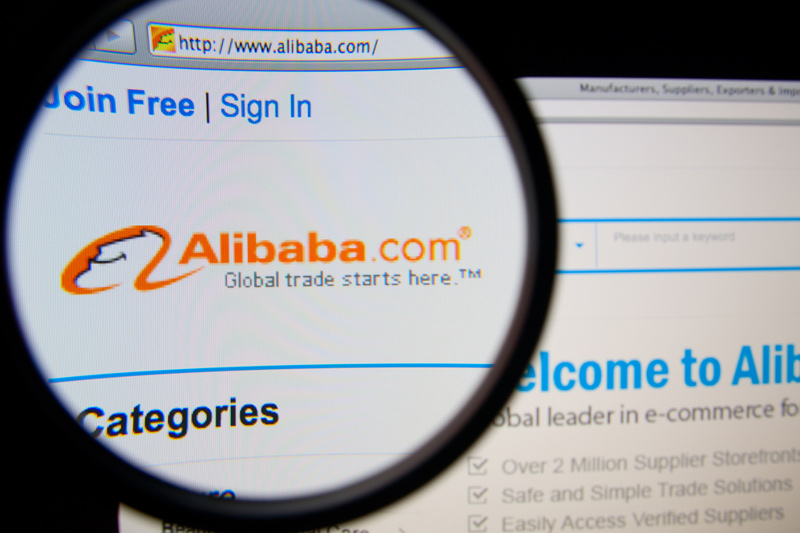By J.J. McGrath - Alibaba Group Holding Ltd. may launch a series of investor presentations known as a roadshow as soon as Sept. 8, while the Chinese online-commerce company prepares for what might be the biggest initial public offering in U.S. equity-market history. The firm appears close to completely answering all questions put to it about the IPO by the U.S. Securities and Exchange Commission, which is a necessary precondition of its stock-market listing, as reported by the Wall Street Journal.
If Alibaba’s anticipated IPO proceeds smoothly, then it should rank as the largest in U.S. history, according to Renaissance Capital LLC. The deal’s expected size of about $20.00 billion would overshadow the IPO takes of Visa Inc. NYSE:V, $17.86 billion; Enel S.p.A. (BIT:ENEL), $16.45 billion; Facebook Inc. NASDAQ:FB. $16.01 billion; and the General Motors Co. NYSE:GM, $15.77 billion.
Alibaba is attractive to investors because its platforms account for about 80 percent of Chinese online commerce -- and such commerce is forecast to triple in size between 2011 and 2015 -- according to the Associated Press. The company is also attractive to investors due to its profitability: It reported net income of $2.01 billion in the three months ended June 30.
The Softbank Corp. TYO:9984 and Yahoo Inc. NASDAQ:YHOO currently have the biggest stakes in Alibaba with 34 percent and 23 percent, in that order, Reuters said.
Based in Hangzhou, Alibaba’s American depositary shares will be listed on the New York Stock Exchange under the symbol BABA. The ADSs could be priced Sept. 18 and begin changing hands the following day, Bloomberg News reported. The company originally aimed at making its U.S. trading debut in early August, but navigating the regulatory process has taken longer than anticipated, the news agency indicated.

Whenever it happens, Alibaba’s trading debut in the U.S. likely will solidify founder and Chairman Jack Ma’s status as the richest person in China: His net worth was recently reported to be $21.8 billion. Ma and the company’s executives will have opportunities during their roadshow to answer questions about the firm posed by the biggest institutional investors in the world.
The concept of so-called variable interest entities, or VIEs, may be one subject to surface during these exchanges, as AP suggested Monday. VIEs constitute arrangements that allow non-Chinese investors to buy into Chinese online and other businesses in which Beijing either forbids or limits foreign ownership.
“The VIE structure is the only way at present to play this game,” Paul Gillis, a professor at Peking University’s Guanghua School of Management, told AP. “So if you want to invest in restricted sectors of China’s economy, you have to get comfortable with the VIE structure.”
